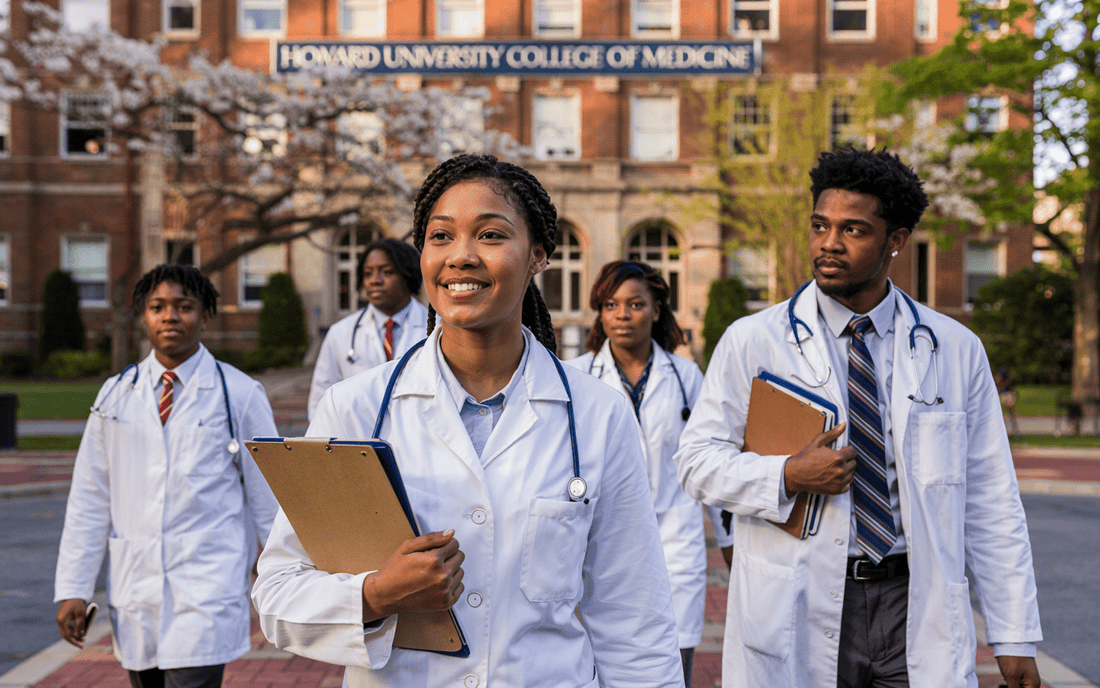
Exploring HBCU Medical Schools
Share
When we talk about the pillars of community and education, Historically Black Colleges and Universities (HBCUs) stand tall. These institutions aren’t just about hitting the books – they’re about uplifting people. Especially when it comes to their medical schools, HBCUs have been game changers in diversifying the medical field, tackling public health issues, and providing crucial services to underserved communities.
The History and Mission of HBCU Medical Schools
Way back when, before equality was even a promise, HBCU medical programs were born from necessity. These schools were the answer to the blatant racism and legal barriers that black folks faced in medicine. Institutions like Howard University College of Medicine, kicking off in 1868, and Meharry Medical College, starting in 1876, set out not only to educate but to directly address the health disparities plaguing minority communities.
List of HBCU Medical Schools
Let’s roll call the vanguards:
1. Howard University College of Medicine (Washington, D.C.) - Crafting black doctors since 1868.
2. Meharry Medical College (Nashville, TN) - Pioneering change since 1876.
3. Morehouse School of Medicine (Atlanta, GA) - Building leaders since 1975.
4. Charles R. Drew University of Medicine and Science (Los Angeles, CA) - Innovating care since 1966.
Each one of these schools is deep in the hustle to tailor programs that meet the specific health needs of diverse communities.
Unique Aspects of HBCU Medical Schools
It’s not just about treating illness, it’s about preventing it. HBCUs focus majorly on specialties like family medicine and internal medicine—areas crucial for community well-being. They’re also out there in the streets, engaging with people, keeping them informed, and keeping them healthy.
Moreover, these schools are at the forefront of researching health conditions that disproportionately impact minority groups, playing a crucial role in broader health initiatives.
Success Stories from HBCU Medical Schools
Take a figure like Dr. David Satcher, a Morehouse graduate turned U.S. Surgeon General. His journey underscores the caliber of professionals HBCUs produce – not just skilled healers, but compassionate leaders who prioritize community health.
Challenges Faced by HBCU Medical Schools
Despite their impact, it's not all smooth sailing. Funding, retention, and the ability to attract top-tier faculty are constant battles. Plus, with the ever-evolving landscape of medical education and technology, the challenge to stay current is real.
The Future of HBCU Medical Schools
Looking ahead, HBCU medical schools are all about innovation and collaboration. They’re on a mission to integrate cutting-edge tech and forge partnerships that enhance their influence on public health policies and community health care.
The role of HBCU medical schools in American healthcare is clear—they train excellent physicians who serve with heart. These schools continue to adapt, evolve, and inspire, ensuring that health care equity is not just an ideal, but a reality.
Ready to make a difference? Show some love to these cornerstone institutions through donations, scholarships, or by getting involved in their community outreach. Considering medicine? Choose an HBCU, where you’ll learn to be more than just a doctor—an advocate, a pioneer, a community leader.

